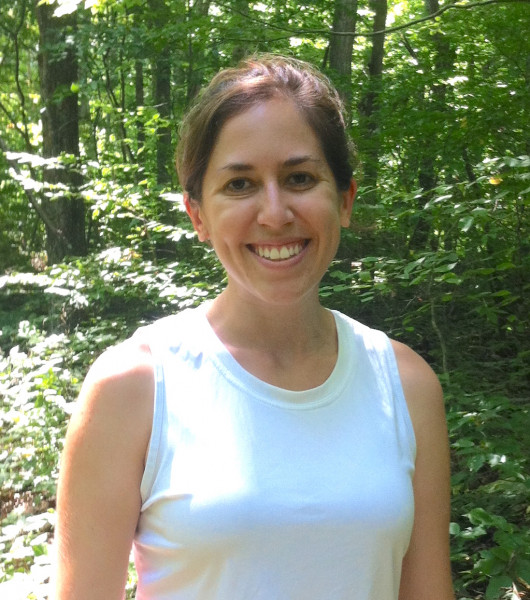Assistant Professor
About
Find Me On:
twitterWebsite:
https://jonnayarrington.weebly.com/Office Hours:
By appointmentRole:
FacultyPosition:
- Assistant Professor
Concentration:
- Cultural Anthropology
Department:
- Anthropology and Geography
Education:
- Postdoc, University of Virginia (2021-2023)
- Ph.D., University of Arizona (2020)
- M.A., University of Arizona (2014)
- B.A., College of William and Mary (2010)
Curriculum Vitae:
Biography
I am a sociocultural, historical anthropologist, focusing on the effects of climate change on human societies and engaging issues of environmental and climate justice in a diversity of settings.
I research social, cultural, and economic liabilities, including for practices of ownership, tenancy, and loss of land and houses, as well as effects for kinship, role succession, and social stratification generally.
I am currently focused on writing up the results of my long-term fieldwork on Tangier Island, Virginia, in the Chesapeake Bay. I have also conducted anthropological research in Norfolk, Virginia (2021-2023) and in Williamsburg, Virginia (2008-2010). I have multiple field sites and have contributed to various projects in rural northern Haiti and coastal French Guiana since 2009.
I am a Program Co-Chair in the Anthropology & Environment Section of the American Anthropological Association (AAA).
Research Interests: social differentiation and distinction (race, ethnicity, kinship, labor, etc.), property and land assessment, climate change, political ecology, political economy, environmental and climate justice, historical ethnography, and the role of historicity in social movements.
Research Methods: ethnographic methods (interviewing, participant-observation, residential fieldwork), qual/quant mixed methods, focus groups and community engagement workshops, discourse analysis, conversation analysis, semiotics, statistical measures, large digital datasets, and historical ethnography (archival, oral-historical, and comparative).
Languages: English, French, Haitian Creole
Publications
In Prep
Book manuscript: Tangier Island project.
Book manuscript: Sugar history project.
Peer-Reviewed Publications
- - Articles in submission / review / revisions.
Forthcoming. Yarrington, J. "Channel Effects: The Political Afterlife of Maintenance Dredging on Tangier Island, Virginia, USA." Human Ecology
2018. Yarrington, J. "Sucre Indigène and Sucre Colonial: Reconsidering the Splitting of the French National Sugar Market, 1800-1860." Economic Anthropology 5(1):20-31. https://doi.org/10.1002/sea2.12099
2018. Yarrington, J. "Producing the Periphery." In Locating Guyane eds. C. MacLeod and S. Wood. Liverpool University Press, 91-104. https://doi.org/10.2307/j.ctv8j65s
2014. Yarrington, J. "Messages from my Father-in-Law: Indexing Membership and Proximity in Long-Distance Voicemails." Language and Communication 38:24-33. https://doi.org/10.1016/j.langcom.2014.06.001
Book Reviews
2024. Review of Engineering Vulnerability: In Pursuit of Climate Adaptation, S. Vaughn. Transforming Anthropology 32(1). https://doi.org/10.1086/730089
2013. Review of Tectonic Shifts: Haiti Since the Earthquake, M. Schuller and P. Morales, eds., New West Indian Guide (NWIG) 88(1/2).
2012. Review of Haiti Rising: Haitian History, Culture and the Earthquake of 2010, M. Munro, ed. New West Indian Guide (NWIG) 86(3/4).
Media
2024. Yarrington, J. "Gentrification as Coastal Planning in the Mermaid City." Theorizing the Contemporary, Fieldsights, January 25. https://culanth.org/fieldsights/gentrification-as-coastal-planning-in-the-mermaid-city
2023. Yarrington, J. "Land Trusts May be Solution to Climate-Driven Housing Squeeze." The Virginian-Pilot Guest Opinion (Op Ed), 18 February.
Technical Reports
2023. Yarrington, J. "Environmental Justice Project Manual for Practitioners: From Idea to Intervention." Manual for the Environmental Justice Policy Clinic, Repair Lab, Karsh Institute of Democracy, University of Virginia.
2023. Yarrington, J. "Life Lessons: Teaching Water Safety to Address Environmental Injustice and Health Inequity in Norfolk, Virginia." Report for the Environmental Justice Policy Clinic, Repair Lab, Karsh Institute of Democracy, University of Virginia.
Courses
-
Cultures and the Global System (ANTH 200)
This course introduces students to anthropological perspectives on the causes and consequences of globalization. The course combines abstract theorization with concrete descriptions and analysis of people’s everyday lives—i.e., ethnography—to critically examine the phenomenon of globalization in terms of social, economic, political, and environmental processes. Themes include: world systems; the production of culture; culture and social change; socioeconomic development; ethnicity and identity formation; religion; gender; migration; and debates about citizenship, governance, and human rights.
-
Indigenous Ecologies and the Modern World (ANTH 415)
This course critically examines the relationship between concepts of indigeneity and concepts of ecology and nature. We consider the construction of the ideas of sacred ecologies and the “ecological indian,” and consider how these concepts have changed during the advent and progression of an era that has been called “modernity.” We use frameworks that situate indigeneity in the context of capital’s expansion, primitive accumulation, peasantries, and politics of cultural struggle.
-
Methods in Cultural Anthropology (ANTH 441)
Anthropologists and other social scientists produce scientific knowledge by connecting sociocultural theory and philosophy to methods of gathering information about everyday life, “on-the-ground.” The logic connecting theory to method is called a methodology. The ways that information or data is observed or produced from everyday life are called methods. This is a course that surveys field methods in Cultural Anthropology.
-
Ethnographic Discourse Analysis (ANTH 507)
A graduate-level course focusing on analyzing discourse using methodologies from the subfields of linguistic anthropology and cultural anthropology. The objective of the course is to explore analytic constructs to understand discourse found “in the wild” (in the field) to link it to larger sociocultural and/or anthropological-linguistic theoretical projects.
